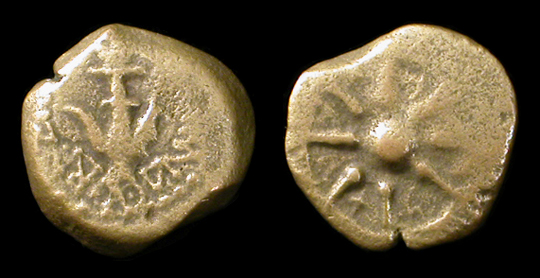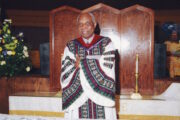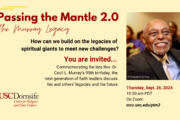This post originally appeared in The Los Angeles Sentinel.
Every Sunday morning, the church offers prayer, scriptures, songs, a sermon and the almighty offering, but does the church say, “Thank you?”
Giving to churches has a consistent, yet somewhat colorful, past that includes traditional tithing, sacrificial offering and pledging—as well as raising funds through the sale of chicken and fried fish dinners.
A national study on Black church giving shows that, regardless of locale, at least 15 percent of Black churches have an annual income of more than $50,000. Offerings, special fund-raisers and pledging are the most common methods to raise income. Some megachurches in Los Angeles receive more than $2 million in donations annually.
The Barna Group, a Christian Research company, says church giving has decreased by nearly 30 percent since 2000. People are giving to non-church groups like the United Way, schools and international philanthropic organizations, too.
While many Black churches offer printed financial reports, there are far too many Black churches unwilling to publish financial reports. All churches must send a Statement of Contributions to all financial givers. The statement records the amount a donor has given in one year, but this is not enough.
Donors deserve acknowledgment for giving. Even when a donor requests no recognition, find a way to say “thank you” anyway! One way to retain a donor is to offer an appreciation call, letter, flowers, plaque and/or email from the pastor/church leadership.
We caution church leaders to recognize everyone. The most famous donor in the Bible is the poor widow woman. She, unlike the wealthy, gave all she had. Jesus praised her for posterity.
You, too, can praise all donors.
The Bible says, “And he called unto him his disciples, and saith unto them, Verily I say unto you, That this poor widow hath cast more in, than all they which have cast into the treasury: For all they did cast in of their abundance; but she of her want did cast in all that she had, even all her living” (Mark 12:43-44).
To find out how to create financially strong organizations and help families find financial security, join us for the Cecil Murray Center for Community Engagement’s Financial Literacy Program.
Photo Credit: Widow’s Mites/Ancient Resource
Mark Whitlock is a contributing writer for the USC Center for Religion and Civic Culture.







